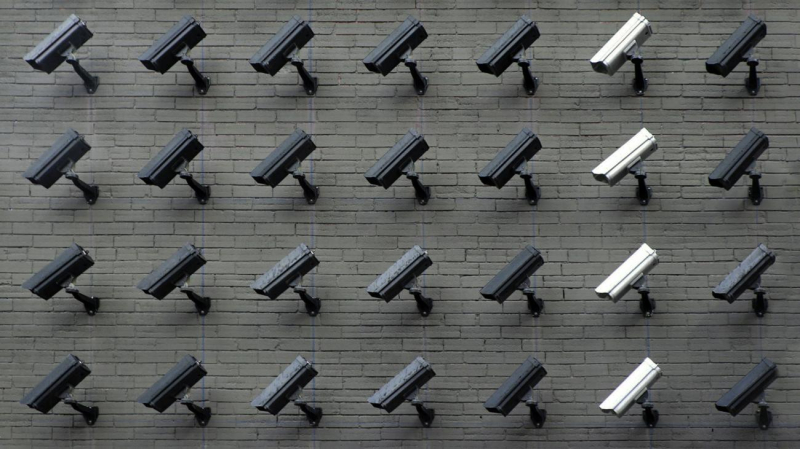
Unsplash Pointed out as a threat to public freedoms, the use of algorithmic video surveillance in France has been authorized as part of the Olympic Games
Marginal in France, the algorithmic video surveillance (VSA) market, which relies on technology to detect suspicious behavior, is now counting on its experimentation during the Paris Olympic Games to take off.
In practice, software is associated with surveillance cameras to detect any abnormal or risky behavior in real time. A human is then notified to take charge of the situation.
Pointed out as a threat to public freedoms, the use of VSA in France was authorized in the context of the Olympic Games by a law adopted in April 2023, for the detection of eight specific scenarios such as crowd movements or a fire, without facial recognition however.
Previously, “there was no text in France that prohibited or authorized the use of this type of software”, explains to AFP Yoann Nabat, a lecturer-researcher in private law and criminal sciences at the University of Bordeaux.
In this gray area, the deployment of algorithmic surveillance has until now been done in France “on tiptoe and half-heartedly,” notes Dominique Legrand, president of the National Association of Video Protection (AN2V).
While there is no official national data, the association Quadrature du Net assures that around fifty cities are already testing it, such as Nice, Nîmes and Aulnay-sous-Bois.
Not counting camera manufacturers, VSA now represents 15% of the total video surveillance market in France, representing a turnover of around 50 million euros, explains Patrick Haas, director of En Toute Sécurité publications, specialists in strategic security analysis, to AFP.
A drop in the ocean in the global market for algorithmic video surveillance, estimated at 5.6 billion dollars in 2023, according to the firm MarketsandMarkets.
Dominated by the Asia-Pacific region, it is expected to almost triple to reach 16.8 billion dollars by 2028, taking advantage for example of technological progress to improve video analysis.
“This is the most promising sector of video surveillance,” insists Patrick Haas. “While the video surveillance market generally grows by 8% to 10% per year, video analysis is +20%”.
Beyond the Olympic Games, the new French legal framework, which allows the experimentation of VSA during “sporting, recreational or cultural events” until March 31, 2025, has already stimulated the sector.
Alan Ferbach, head of Videtics, one of the four French companies selected to deploy VSA during the Olympic Games, particularly for crowd management, has observed for a year “a systematic need” to combine artificial intelligence and cameras in calls for tender from local authorities.
The sector, which is mainly made up of large defence companies such as Thales and a handful of French start-ups and foreign companies – mainly Israeli, Chinese and American – is now hoping that the Olympic experience will lead to lasting legislation.
This prospect should create “a windfall effect”, indicates Yoann Nabat. “It will become a huge market since all the town halls, for all the events, will want their video surveillance system”.
Algorithmic video surveillance could then experience the same evolution as that of drones, he anticipates.
A reason to regulate this market even more seriously, if we do not want to end up in an Orwellian world where technology will take over to take us even further towards a Chinese-style social credit.
ALSO READ
Digital identity and surveillance of private communications to combat access to sensitive content Several bills that intend to combat access to pornographic and child pornography content online are about to be voted on by parliaments… November 03, 2023 – 16:07 Politics How the European Union wants to control information thanks to Big Techs. Part 3) Algorithms and dependencies Investigation in several parts – How the European Union wants to control information thanks to Big Techs. From fact-checking to American intelligence agencies … June 06, 2023 – 10:00 Society Video surveillance software used by the national police hides a facial recognition function TECH – Presented as an intelligent video surveillance device, the Video Synopsis software from the Israeli company Briefcam hides a facial recognition option… December 05, 2023 – 16:27 Society
You liked the article ? It mobilized our editorial staff, which lives only on your donations.
Information has a cost, especially since competition from subsidized editorial staff requires increased rigor and professionalism.
With your support, France-Soir will continue to offer its articles for free because we believe that everyone should have access to free and independent information to form their own opinion.
You are the sine qua non condition for our existence, support us so that France-Soir remains the French media that allows the most legitimate people to express themselves.

